
Exploring Up Station: The Heartbeat of Bamenda
Up Station, perched majestically on the hills of Bamenda, offers a breathtaking panorama of the city below. This vibrant neighbourhood is not just the administrative center of Bamenda but also a treasure trove of cultural and natural wonders waiting to be explored. As you ascend to Up Station, the scenic drive itself becomes an adventure, with winding roads unveiling spectacular views of the lush, rolling hills and valleys. Up Station is home to some of Bamenda's most significant landmarks. The Governor's Office, a historic building dating back to the colonial era, stands as a testament to the region's rich history. Nearby, the Bamenda Congress Hall, a hub for political and social events, reflects the dynamic spirit of the local community. Don't miss the opportunity to visit the Bamenda Main Market, a bustling hive of activity where you can immerse yourself in the local culture, sample traditional foods, and shop for unique crafts and souvenirs. Nature enthusiasts will find Up Station particularly enchanting. The cool, crisp air and serene environment make it an ideal spot for hiking and picnicking. The nearby Bamenda Mountain offers numerous trails for both novice and seasoned hikers. As you explore, you'll encounter diverse flora and fauna, making it a perfect destination for eco-tourism. Whether you're here for the history, the culture, or the natural beauty, Up Station promises an unforgettable experience.
Local tips in Up Station
- Visit early in the morning for the best views and cooler temperatures.
- Hire a local guide to enhance your hiking experience on Bamenda Mountain.
- Bring cash for shopping at the Bamenda Main Market, as card payments are not widely accepted.
- Wear comfortable walking shoes, especially if you plan to explore the trails.
- Check the local event schedule at the Congress Hall for unique cultural experiences.
Exploring Up Station: The Heartbeat of Bamenda
Up Station, perched majestically on the hills of Bamenda, offers a breathtaking panorama of the city below. This vibrant neighbourhood is not just the administrative center of Bamenda but also a treasure trove of cultural and natural wonders waiting to be explored. As you ascend to Up Station, the scenic drive itself becomes an adventure, with winding roads unveiling spectacular views of the lush, rolling hills and valleys. Up Station is home to some of Bamenda's most significant landmarks. The Governor's Office, a historic building dating back to the colonial era, stands as a testament to the region's rich history. Nearby, the Bamenda Congress Hall, a hub for political and social events, reflects the dynamic spirit of the local community. Don't miss the opportunity to visit the Bamenda Main Market, a bustling hive of activity where you can immerse yourself in the local culture, sample traditional foods, and shop for unique crafts and souvenirs. Nature enthusiasts will find Up Station particularly enchanting. The cool, crisp air and serene environment make it an ideal spot for hiking and picnicking. The nearby Bamenda Mountain offers numerous trails for both novice and seasoned hikers. As you explore, you'll encounter diverse flora and fauna, making it a perfect destination for eco-tourism. Whether you're here for the history, the culture, or the natural beauty, Up Station promises an unforgettable experience.
Iconic landmarks you can’t miss
Nkwen Fon's Palace
Discover the rich cultural heritage of the Nkwen people at the Nkwen Fon's Palace in Bamenda, Cameroon. A living museum of tradition and history.
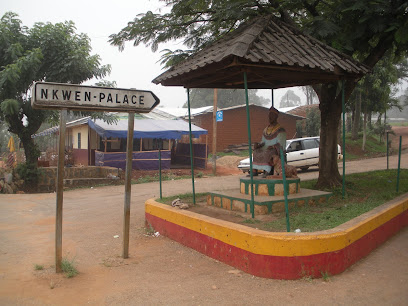
Mile 4 park
Escape to Mile 4 Park in Bamenda: A tranquil oasis blending nature and local charm for relaxation and cultural experiences.
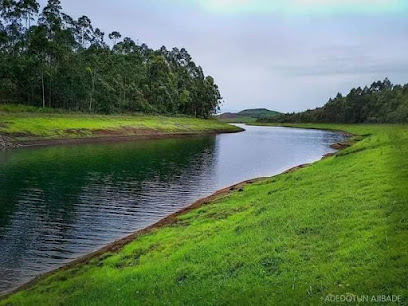
Governor junction upstation BAMENDA
Experience the vibrant heart of Bamenda at Governor Junction Upstation: a hub of culture, cuisine, and community spirit.
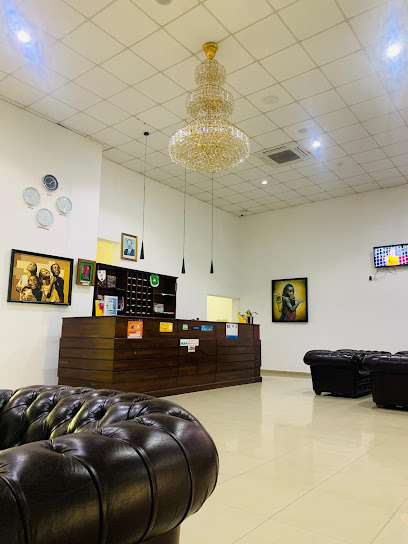
Mankon Museum
Discover the vibrant cultural heritage of the Mankon people at the Mankon Museum in Bamenda, Cameroon. A journey through history and tradition.
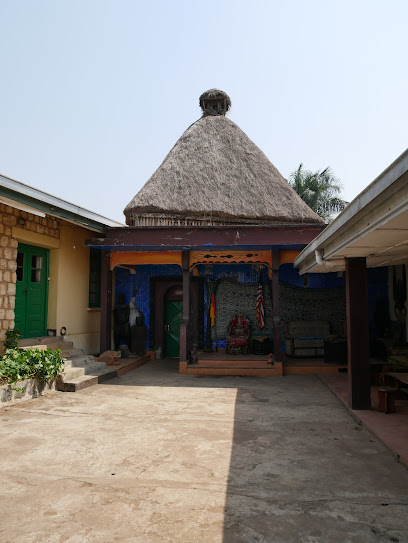
Military Hospital Up Station Bamenda
Explore the Military Hospital Up Station Bamenda, a landmark of colonial architecture and medical history in the heart of Bamenda, Cameroon.
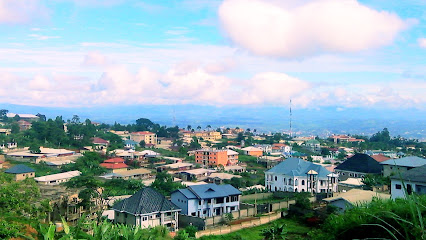
Ngeng Junction
Experience the heart of Bamenda's transport network at Ngeng Junction, connecting you to the Northwest Region's culture and landscapes.
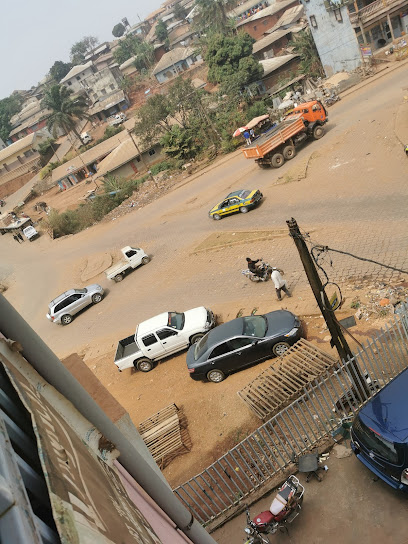
Charifa Republic
Experience blissful pampering at Charifa Republic, the ultimate beauty salon in Bamenda, where relaxation meets rejuvenation for every traveler.
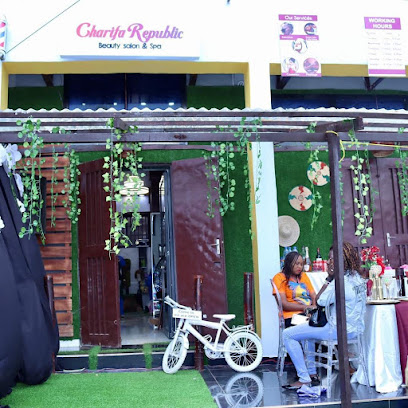
UP STATION
Experience the vibrant trade culture of Bamenda at UP STATION, a wholesaler hub offering unique local goods and authentic market life.
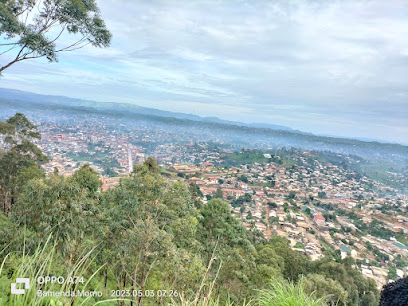
NTACCUL (UP-STATION BAMENDA)
Discover NTACCUL in Bamenda: Immerse yourself in local culture, crafts, and flavors in the heart of Cameroon's vibrant Up Station neighborhood.
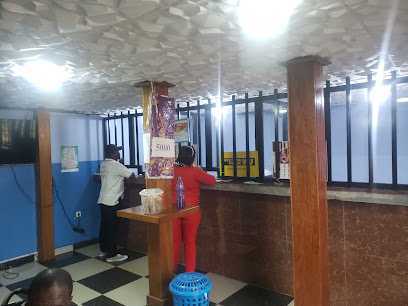
C-bend nature park
Escape to nature's embrace at C-bend Nature Park in Bamenda, where tranquility meets lush landscapes for a refreshing retreat.
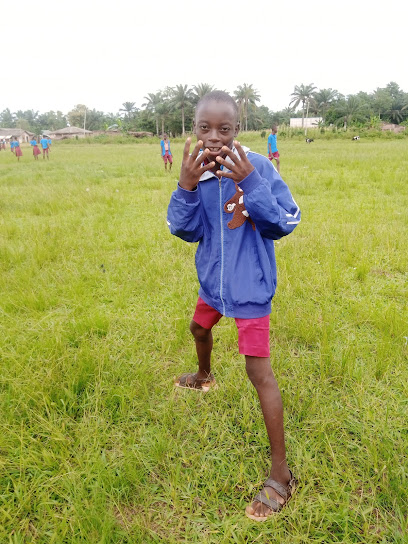
Unmissable attractions to see
Mile 1 junction upstation
Escape to the serene beauty of Mile 1 Junction Upstation in Bamenda, a perfect green oasis for relaxation and nature lovers.
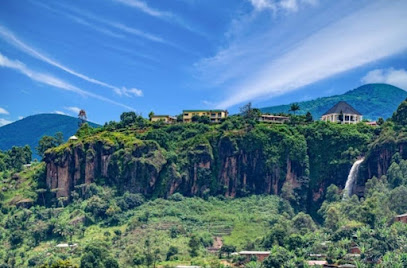
Mankon Museum
Discover the rich cultural heritage of the Mankon people at this captivating museum in Bamenda, Cameroon.
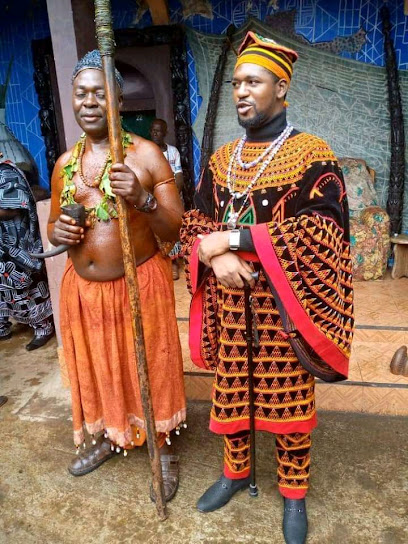
Noble Man Junction Bamenda
Experience the vibrant local culture and scenic views at Noble Man Junction in Bamenda, a must-visit for every traveler.

edge company
Discover the architectural marvels of Edge Company in Bamenda, where local craftsmanship meets innovative design in a serene setting.

Rock pillars
Explore the awe-inspiring Rock Pillars of Bambili, a breathtaking natural attraction that showcases the beauty of Cameroon’s landscape.
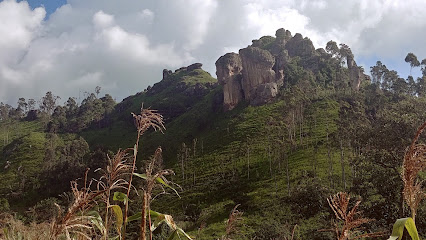
NTACCUL (UP-STATION BAMENDA)
Discover the vibrant culture and scenic landscapes of NTACCUL in Bamenda, a must-visit tourist attraction in Cameroon.
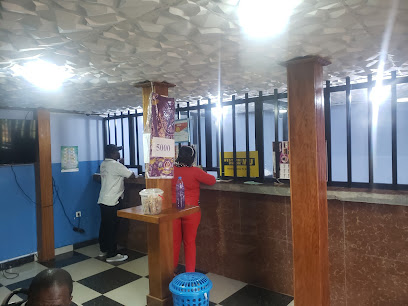
Enyoh-batibo
Discover the cultural richness and stunning landscapes of Enyoh-Batibo in Bamenda, a hidden gem for nature lovers and cultural enthusiasts.

Essential places to dine
Dreamland Restaurant
Experience the vibrant flavors of Bamenda at Dreamland Restaurant – where every dish tells a story.
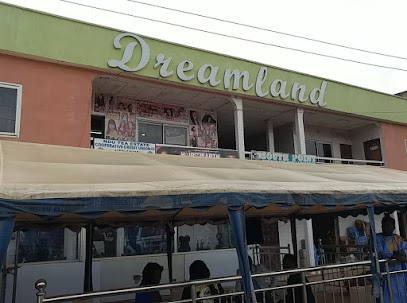
Chenjo's Grill
Experience authentic flavors at Chenjo's Grill in Bamenda—where every bite tells a story of local tradition and culinary excellence.
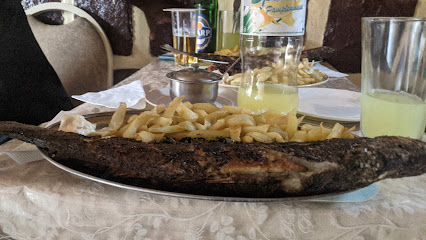
Blackrose Luxe Restaurant
Discover exquisite dining at Blackrose Luxe Restaurant in Bamenda - where local flavors meet modern culinary artistry.
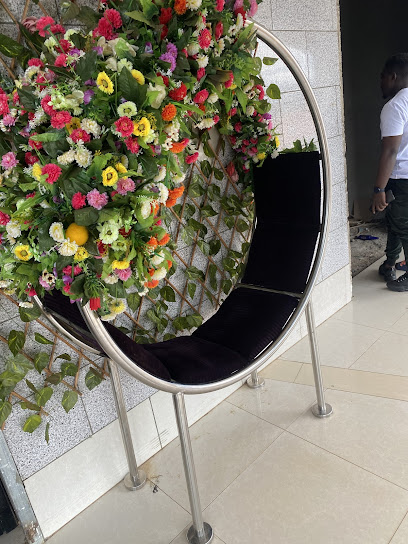
New Century Restaurant
Experience the authentic flavors of Cameroon at New Century Restaurant in Bamenda – a true culinary treasure for all food lovers.

Bamenda Club 58
Discover authentic Cameroonian flavors at Bamenda Club 58 - where culinary tradition meets warm hospitality in the heart of Bamenda.
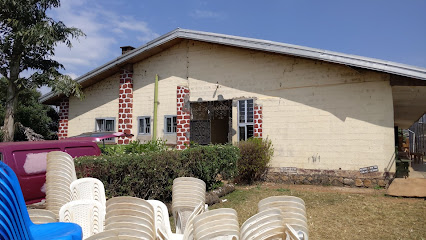
Keto Restaurant
Discover authentic Cameroonian cuisine at Keto Restaurant in Bamenda - where every dish tells a story.

OPEN HEAVENS RESTAURANT
Experience authentic African cuisine at Open Heavens Restaurant in Bamenda—where tradition meets flavor in every dish.

All Aroma Restaurant
Experience authentic Cameroonian cuisine at All Aroma Restaurant in Bamenda's vibrant Main Market - A culinary journey awaits!
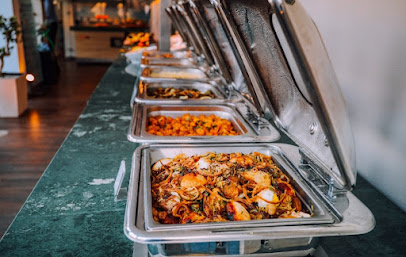
Millennium Restaurant
Discover authentic Cameroonian cuisine at Millennium Restaurant in Bamenda – where every dish tells a story.
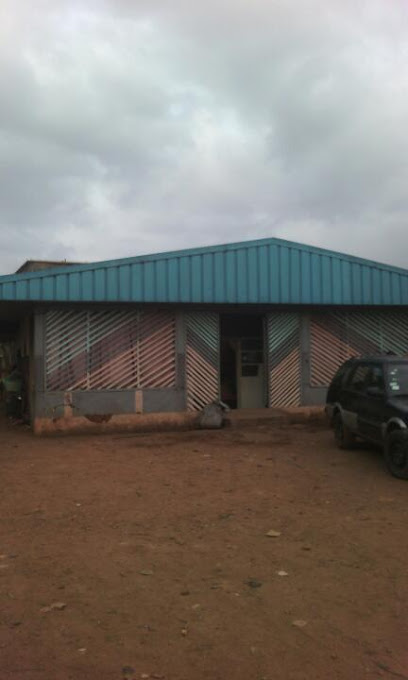
Chief town lounge
Experience authentic local cuisine at Chief Town Lounge in Bamenda, where every dish tells a story and every visit feels like home.
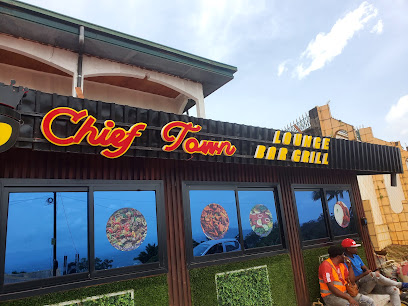
Markets, malls and hidden boutiques
apple store plus
Discover cutting-edge technology and exceptional service at the Apple Store Plus in Nkwen, Bamenda, a must-visit for every tech aficionado.

YSN Company Ltd
Explore YSN Company Ltd, Bamenda's leading health and beauty shop, offering exceptional products and personalized service for all your beauty needs.
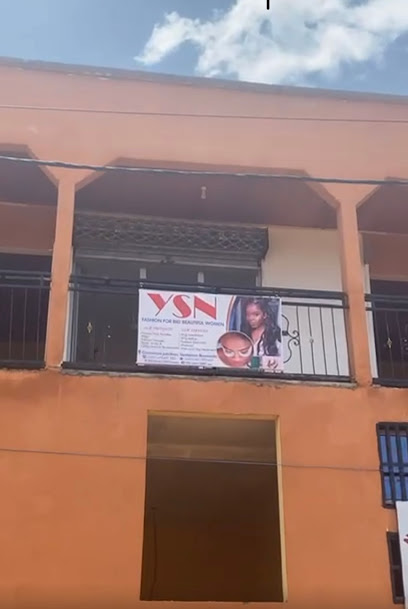
Aurora Fashion Collection
Discover unique fashion accessories at Aurora Fashion Collection in Bamenda, where local craftsmanship meets contemporary style.

Bendecanna Fancy Shop
Explore Bendecanna Fancy Shop in Bamenda, a boutique offering unique local crafts and a taste of the vibrant culture of Cameroon.

Lino chaussures, ️
Explore Lino Chaussures in Bamenda for unique gifts and local craftsmanship that embody the spirit of the region.

Agnes & Co
Discover the heart of Bamenda at Agnes & Co, where print comes alive with local and international magazines to inspire every traveler.

Workplace
Explore Bamenda's rich culture through unique handcrafted gifts, local artisan works, and memorable souvenirs at the city's charming gift shop.

Shalom's Enterprise
Discover unique local crafts and souvenirs at Shalom's Enterprise, a vibrant store in the heart of Bamenda, perfect for tourists seeking authentic experiences.

Goodnesses Fashion
Discover unique fashion accessories that reflect Bamenda's vibrant culture at Goodnesses Fashion, the ultimate shopping destination for stylish tourists.

Dress shop
Explore Bamenda's vibrant fashion scene at this charming dress shop, where local culture meets contemporary style in a unique shopping experience.

Essential bars & hidden hideouts
Awesome Quiet Bar
Experience the serene atmosphere and diverse drink selection at Awesome Quiet Bar, the perfect spot for relaxation in the heart of Bamenda.
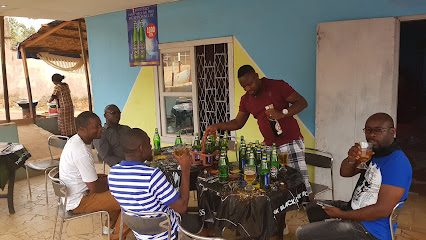
OUTBACK
Discover the vibrant nightlife and local culture at OUTBACK, Bamenda's premier bar for an unforgettable experience.
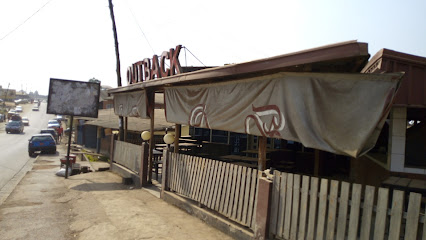
Splendid
Experience the vibrant nightlife of Bamenda at Splendid, a lively bar offering an array of local beverages and a welcoming atmosphere.
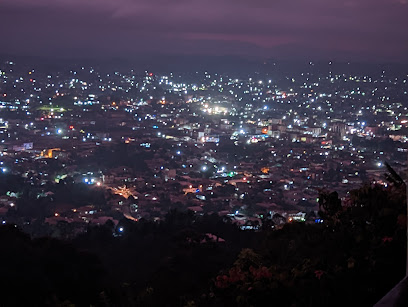
Watson Bar
Experience the vibrant nightlife at Watson Bar in Bamenda, where great drinks meet local culture in a cozy atmosphere.
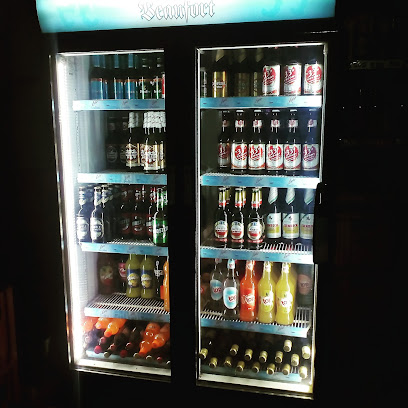
Blue moon upstation
Experience the vibrant local nightlife at Blue Moon Upstation, a welcoming bar in Bamenda, perfect for unwinding and mingling with locals.
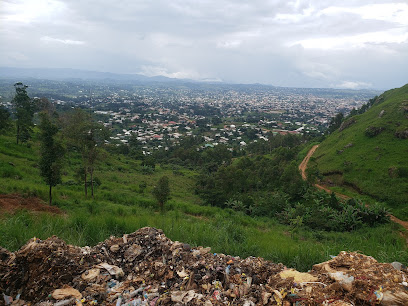
Plush House VIP
Discover the exquisite atmosphere and vibrant nightlife at Plush House VIP, a premier lounge in Bamenda, perfect for relaxation and entertainment.
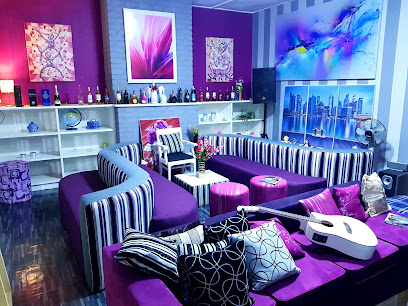
Jusue Bar
Discover the lively atmosphere and local flavors at Jusue Bar in Bamenda, a perfect spot for relaxation and socializing.

Ebode
Experience the vibrant nightlife of Bamenda at Ebode, a bar where locals and tourists unite over refreshing drinks and lively entertainment.

Oliver bar
Discover the lively atmosphere of Oliver Bar in Bamenda, where local flavors and vibrant nightlife meet.

Nganda bar
Experience the lively atmosphere and local culture at Nganda Bar in Bamenda, where great drinks and music come together for an unforgettable night.

Local Phrases
-
- HelloHello
[Heh-loh] - GoodbyeGoodbye
[Gud-bye] - YesYes
[Yes] - NoNo
[No] - Please/You're welcomePlease/You're welcome
[Pleez/Yoo-uh wel-kum] - Thank youThank you
[Tank yoo] - Excuse me/SorryExcuse me/Sorry
[Ek-skews mee/Sor-ee] - How are you?How are you?
[Hauh a yu?] - Fine. And you?Fine. And you?
[Fain. An yu?] - Do you speak English?Do you speak English?
[Doo yoo speek Ing-lish?] - I don't understandI don't understand
[I dohn und-er-stand]
- HelloHello
-
- I'd like to see the menu, pleaseI'd like to see the menu, please
[I'd laik tuh see dee men-yoo, pleez] - I don't eat meatI don't eat meat
[I dohn eet meet] - Cheers!Cheers!
[Ch-eers!] - I would like to pay, pleaseI would like to pay, please
[I wood laik tuh pay, pleez]
- I'd like to see the menu, pleaseI'd like to see the menu, please
-
- Help!Help!
[Help!] - Go away!Go away!
[Go awey!] - Call the Police!Call the Police!
[Kaul thee Po-lees!] - Call a doctor!Call a doctor!
[Kaul uh dok-tur!] - I'm lostI'm lost
[Aym lost] - I'm illI'm ill
[Aym eel]
- Help!Help!
-
- I'd like to buy...I'd like to buy...
[I'd laik tuh bai...] - I'm just lookingI'm just looking
[Aym just luk-ing] - How much is it?How much is it?
[Hauh much iz it?] - That's too expensiveThat's too expensive
[Dats tooh ek-spehn-siv] - Can you lower the price?Can you lower the price?
[Can yoo low-er thee prais?]
- I'd like to buy...I'd like to buy...
-
- What time is it?What time is it?
[Wat taim iz it?] - It's one o'clockIt's one o'clock
[Its wun uh-klok] - Half past (10)Half past (10)
[Haf past (10)] - MorningMorning
[Morn-ing] - AfternoonAfternoon
[Af-ter-noon] - EveningEvening
[Ee-ven-ing] - YesterdayYesterday
[Yes-ter-day] - TodayToday
[Toh-day] - TomorrowTomorrow
[Tuh-mor-row] - 11
[Wun] - 22
[Too] - 33
[Tree] - 44
[For] - 55
[Fai-v] - 66
[Siks] - 77
[Sev-en] - 88
[Eit] - 99
[Nain] - 1010
[Ten]
- What time is it?What time is it?
-
- Where's a/the...?Where's a/the...?
[Wears a/the...?] - What's the address?What's the address?
[Wats thee uh-dress?] - Can you show me (on the map)?Can you show me (on the map)?
[Can yoo show mee (on thee map)?] - When's the next (bus)?When's the next (bus)?
[Wen's thee nekst (bus)?] - A ticket (to ....)A ticket (to ....)
[A tikit (to ....)]
- Where's a/the...?Where's a/the...?
History of Up Station
-
Up Station in Bamenda served as a key administrative centre during the German colonial period in the late 19th and early 20th centuries. Its strategic location made it an essential node for colonial governance and trade, with the establishment of administrative buildings and infrastructure that laid the groundwork for modern Bamenda.
-
The arrival of missionaries in the early 20th century significantly impacted Up Station, introducing Western education and Christianity to the region. Schools and churches were established, which played a pivotal role in shaping the cultural landscape of Bamenda and providing educational opportunities for the local population.
-
Up Station is a vibrant reflection of the diverse ethnic groups in the Northwest Region, including the Meta, Nso, and Mankon peoples. The neighbourhood is known for its rich cultural expressions, including traditional dances, music, and festivals, which are integral to the community's identity and social cohesion.
-
In recent years, Up Station has been at the forefront of the Anglophone crisis, a political and social movement advocating for the rights of English-speaking Cameroonians. The neighbourhood has witnessed numerous protests and gatherings, highlighting the community's resilience and commitment to addressing issues of governance, language, and cultural recognition.
-
The growth of Up Station has paralleled the urbanization of Bamenda, with increased commercial activities and infrastructural development. The area has evolved into a bustling economic hub, where local markets, shops, and services thrive, reflecting the dynamic nature of Bamenda's economy and its integration into regional trade networks.
Up Station Essentials
-
Up Station is centrally located in Bamenda, making it accessible from various neighborhoods. From the Bamenda Airport, you can take a taxi or arrange for local transport to Up Station, which is about 15-20 minutes away. If you are coming from other neighborhoods, such as Mankon or Commercial Avenue, local taxis and moto-taxis (motorcycle taxis) are available and are a convenient way to reach Up Station.
-
In Up Station, the best way to get around is by foot, as many attractions are within walking distance. For longer distances, local taxis are readily available, and you can also use moto-taxis, which are often faster. Bicycles can be rented from local shops, but be cautious of traffic. Public transport options, like minibuses or 'bush taxis,' connect Up Station to other parts of Bamenda, though they can be crowded.
-
Up Station is generally safe for tourists, but it is advisable to remain vigilant. Avoid walking alone at night, especially in less populated areas. Areas to be cautious of include some back streets where petty crime can occur. Always keep your belongings secure, and be wary of pickpockets in crowded places.
-
In case of an emergency, dial 112 for police assistance or 117 for medical emergencies. It is advisable to have a local SIM card with emergency numbers saved. The nearest hospital is the Regional Hospital in Bamenda, which can provide emergency care. For minor issues, local pharmacies are available to assist with over-the-counter medications.
-
Fashion: Do dress modestly, especially in religious sites. Avoid overly revealing clothing. Religion: Do respect local customs, and dress appropriately when visiting churches. Public Transport: Do offer your seat to the elderly and be polite. Don't eat or drink on public transport. Greetings: Do greet people with a handshake or a friendly smile, and use local greetings such as 'Bonjour' or 'Nkwen.' Eating & Drinking: Do try local dishes and accept food offerings. Don't refuse hospitality, as it may be seen as disrespectful.
-
To experience Up Station like a local, visit the local markets where you can find fresh produce and traditional crafts. Engage with vendors and be open to trying local foods. For a unique experience, attend a local event or festival if your visit coincides with one. Learning a few phrases in Pidgin English or French can enhance interactions with locals and show appreciation for their culture.
Nearby Cities to Up Station
-
Things To Do in Mbouda
-
Things To Do in Dschang
-
Things To Do in Bafoussam
-
Things To Do in Foumban
-
Things To Do in Mamfe
-
Things To Do in Nkongsamba
-
Things To Do in Bafia
-
Things To Do in Douala
-
Things To Do in Buea
-
Things To Do in Tiko
-
Things To Do in Calabar
-
Things To Do in Edea
-
Things To Do in Limbe
-
Things To Do in Uyo
-
Things To Do in Yaoundé





